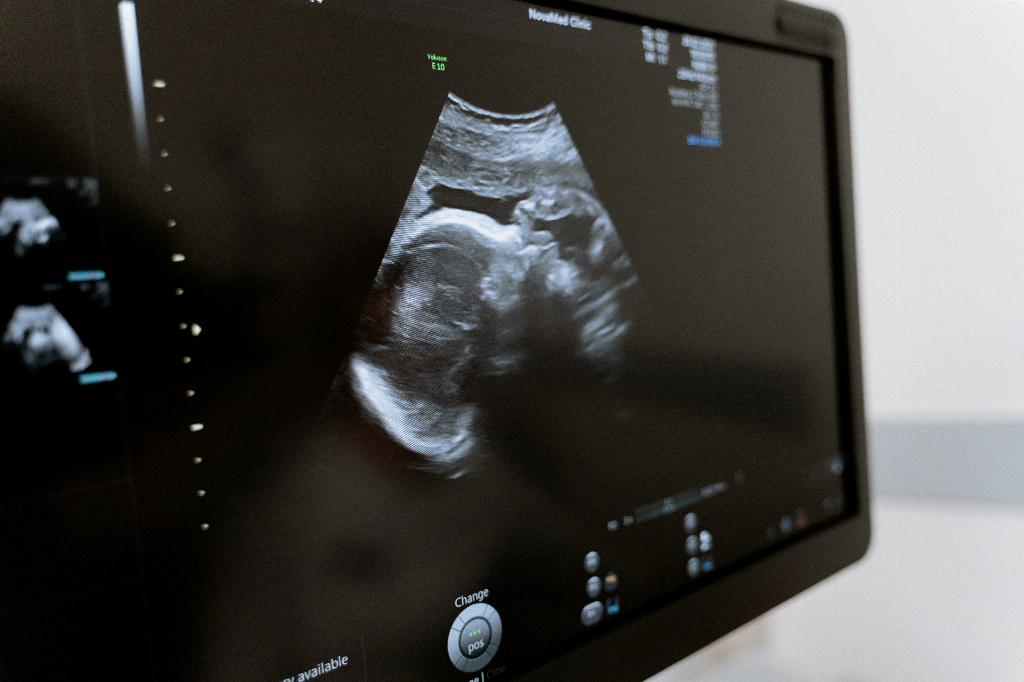During pregnancy, many women experience back pain, but why does it seem to intensify at night? One prevailing theory suggests that the expanding uterus plays a crucial role in this discomfort. As the uterus grows, it exerts pressure on the vena cava, a major vein responsible for returning blood from the lower body to the heart. This pressure can lead to venous engorgement in the pelvis, contributing to the exacerbation of back pain, particularly when the woman is lying down.
The Role of Gravity and Posture in Nighttime Back Pain
When a pregnant woman lies down at night, the weight of the uterus combined with the force of gravity can further compress the vena cava against the spine. This compression not only restricts blood flow but also adds strain to the lower back muscles and spinal discs, resulting in heightened discomfort. Additionally, the position in which a pregnant woman sleeps can impact the alignment of her spine, potentially exacerbating existing back pain issues.
Hormonal Changes and Nighttime Discomfort
Furthermore, hormonal fluctuations during pregnancy can influence the experience of back pain, particularly at night. The hormone relaxin, which is produced in higher quantities during pregnancy, is essential for loosening ligaments and preparing the body for childbirth. However, this hormone can also lead to increased joint flexibility and instability, causing added strain on the back muscles and contributing to nighttime discomfort.
Physical and Emotional Stressors
Aside from physiological changes, pregnancy is accompanied by various physical and emotional stressors that can exacerbate nighttime back pain. Stress, anxiety, and the challenges of adjusting to a changing body shape can manifest as tension in the back muscles, amplifying discomfort during sleep. Moreover, the anticipation of impending labor and the responsibilities of impending motherhood can also contribute to disrupted sleep patterns and heightened pain perception.
Strategies for Managing Nighttime Back Pain During Pregnancy
While nighttime back pain during pregnancy can be distressing, there are several strategies that women can employ to alleviate discomfort and improve sleep quality. Supportive pillows, such as a pregnancy pillow or a wedge pillow, can help maintain proper spinal alignment and relieve pressure on the lower back. Adopting sleep positions that minimize strain on the back, such as sleeping on the side with a pillow between the knees, can also help reduce nighttime discomfort.
Engaging in Regular Exercise and Prenatal Yoga
Staying active during pregnancy through low-impact exercises and prenatal yoga can strengthen the muscles supporting the spine and promote flexibility, reducing the likelihood of back pain. Prenatal yoga, in particular, focuses on gentle stretches and poses that target areas prone to tension during pregnancy, offering relief for back pain symptoms and promoting relaxation. It is essential, however, to consult with a healthcare provider before beginning any new exercise regimen during pregnancy.
Utilizing Heat Therapy and Massage Techniques
Heat therapy, such as using a heating pad or taking a warm bath before bed, can help relax tight muscles and improve blood circulation, alleviating nighttime back pain. Additionally, gentle massage techniques, either performed by a partner or a trained professional, can release tension in the back muscles and provide relief from discomfort. However, it is crucial to ensure that the massage is performed safely and does not target sensitive areas that may be affected by pregnancy-related changes.
Practicing Relaxation Techniques and Mindfulness
Integrating relaxation techniques, such as deep breathing exercises, guided imagery, or mindfulness meditation, into a bedtime routine can promote relaxation and reduce stress levels, potentially easing nighttime back pain. By focusing on breathing and centering the mind, pregnant women can cultivate a sense of calm and enhance their ability to cope with discomfort, fostering better sleep quality and overall well-being.
Seeking Professional Guidance and Support
If nighttime back pain during pregnancy persists or becomes increasingly severe, it is essential to seek guidance from a healthcare provider specializing in prenatal care. A healthcare professional can assess the underlying causes of back pain, offer personalized recommendations for pain management, and provide additional support or referrals to other healthcare professionals as needed. Open communication with healthcare providers is crucial for addressing concerns and ensuring the health and well-being of both the mother and the baby.
Creating a Nurturing Sleep Environment
In addition to physical strategies for managing nighttime back pain, creating a nurturing sleep environment can contribute to improved comfort and restorative sleep during pregnancy. Ensuring a cool, dark, and quiet sleeping environment, free from distractions and disruptions, can enhance relaxation and promote better sleep quality. Establishing a consistent bedtime routine that incorporates relaxation practices and encourages winding down can signal to the body that it is time to rest, supporting the transition to restful sleep.
Monitoring and Adapting to Changing Needs
Throughout pregnancy, a woman’s body undergoes significant changes that may affect her experience of back pain at night. By monitoring symptoms, staying attuned to the body’s signals, and adapting self-care practices as needed, pregnant women can effectively manage nighttime discomfort and prioritize their well-being. Paying attention to individual comfort preferences, seeking support from loved ones, and being proactive in addressing concerns can empower women to navigate the challenges of nighttime back pain during pregnancy with resilience and self-compassion.
Embracing Self-Care and Compassion
Ultimately, coping with nighttime back pain during pregnancy requires a holistic approach that integrates physical, emotional, and psychological well-being. Embracing self-care practices, prioritizing rest and relaxation, and cultivating self-compassion are essential components of nurturing the body and mind during this transformative period. By listening to one’s body, seeking support when needed, and approaching challenges with resilience and grace, women can navigate nighttime back pain during pregnancy with greater ease and embrace the journey to motherhood with strength and positivity.

